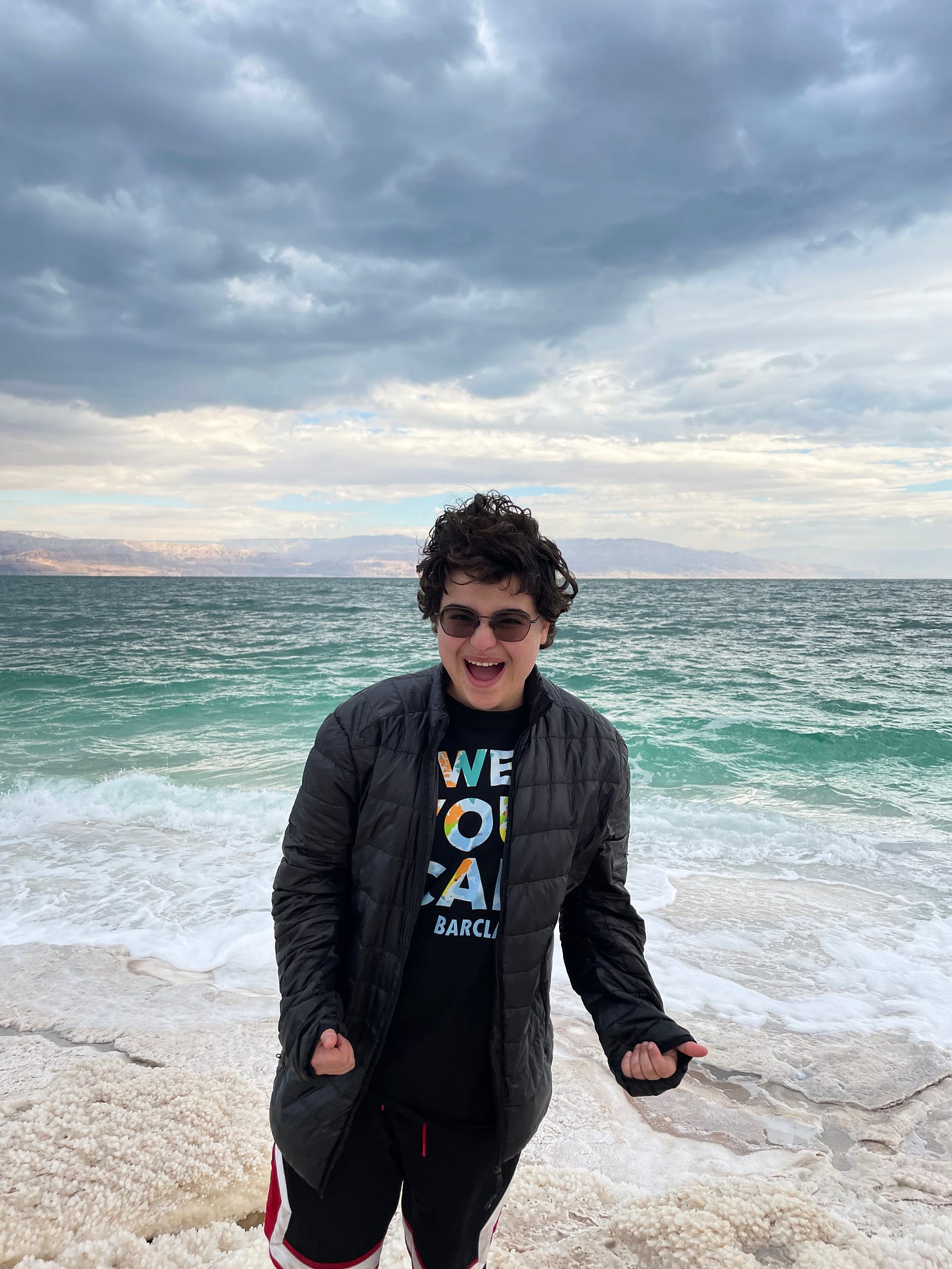Why I Rejected Gender Affirming Care (Part 2)
War helped me understand I *was* born in the right body
Last week we introduced Maia, an enigmatic 25-year-old woman, who spent nearly half her life identifying as a boy, later living as a man in Israel and planning her gender reassignment surgery there.
That was, until October 7. On that day, everything changed.
This is part two of our three-part series about Maia’s journey towards self-acceptance. This essay (and the third, next week) are available through paywalled access. Your paid subscription gives you access to the complete series and supports Restore Childhood’s ongoing efforts and initiatives to protect and advocate for best policies and practices for children.
Thank you for being a vital part of our journey.
Natalya & Dana
Also don’t forget to DOWNLOAD OUR TOOLKIT that helps parents decode new and existing gender policies in schools.
Here’s Maia:
“How did I, as a 24-year-old woman who had spent half her life in a transgender fantasy, find my way back to my female body?
Having been exposed to gender critical content through internet algorithms following fruitless attempts to convince some of my American friends to develop more nuanced views on Middle East politics, I decided to embrace the cognitive dissonance. When I saw videos pop up on my YouTube feed, no matter how disagreeable- I forced myself to watch.
Then, one day, I was served a video made by a de-transitioner, detailing her ‘sex change’ regret.
Previously, I had been unaware that it was actually possible for one to regret their sex change. Trans activists online had repeatedly claimed that regret rates for ‘gender affirming care’ were lower than the rates of regret for those who undergo knee replacement surgeries. I had always been fascinated by anomalies, from exceedingly rare brain tumors to genius minds.
The trans community had convinced me that detransitioners and regretters were the anomalies, and when the opportunity presented itself to learn about them, I took it.
The first de-transitioner accounts I was exposed to, however, only further reinforced my belief that I was a ‘true transsexual’ unlike the stereotypically feminine, heterosexual young women whose detransition stories I was seeing online. I couldn’t relate to their stories, because I was stuck on the superficial appearance of conformity to feminine stereotypes- which was what I dreaded most about being a woman.
I liked the way I dressed, and my sharp haircuts styled at Arab barber shops. I thought that detransitioning would mean that I had to conform to the beauty ideals of feminine stereotypes- so, I stayed trans.
By day, I was doggy-paddling my way through a sea of ‘culture war’ related content, attempting to make sense of it all. But by night, I dipped my toes in Israel’s trans community. I realized that my desire to live a life as a normal man, would not be achieved by affiliating myself with the trans community- neither in Israel, nor in the U.S. Between the neopronouns and the unusual haircuts, I didn’t feel I belonged.
The trans communities in both countries prioritized being ‘trans and proud’ as opposed to transitioning with the goal of eventually assimilating into society as a member of the opposite sex. It had become evident to me that the preoccupation with transition as a radical act of political defiance had made its way to Israel. In ‘queer’ community centers, I had noticed that the mandatory pronoun sharing rituals I thought I had left behind in the United States, had already pervaded Israeli trans culture.
Rather than discussing ways for the trans community to find jobs outside of prostitution, the community concerned itself more with teaching native Hebrew speakers to contort their highly gendered language into a confusing attempt at gender neutrality. I noticed that non-binary identified Hebrew speakers requested to be spoken about with a mixture of masculine, feminine and plural pronouns in varying combinations and frequencies. The request to refer to someone with plural pronouns struck me as particularly odd, considering that plural pronouns in Hebrew are still either masculine or feminine.
I found myself constantly confused by the dissonance of hearing native Hebrew speakers with perfect Israeli accents, actively mixing up gender, tense and number in a way which made them sound like new immigrants struggling to adapt to speaking a foreign language. As a student of the Hebrew language who was trying to master grammatically correct speech, I realized that these trans community groups would not be the proper language immersion which I needed in order to assimilate into Israeli society as a new immigrant.
While much of the trans community wanted to transition with the goal of being trans, I wanted to transition with the goal of being normal.
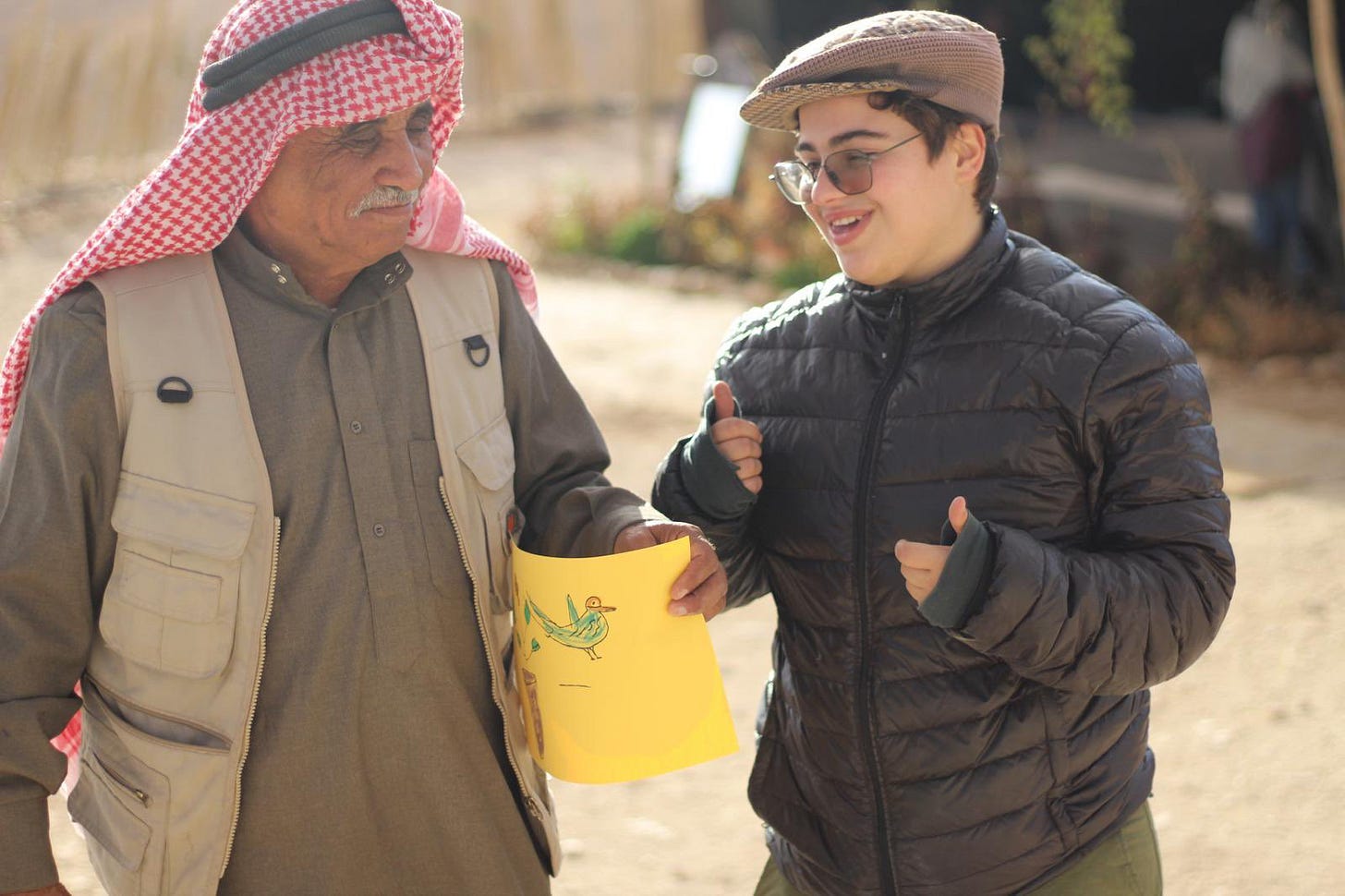
Instead of spending my free time with people who taught me how to speak Hebrew incorrectly, I decided to spend most of my time with normal Jews, Arabs and internationals who were unfamiliar with the entire concept of ‘preferred pronouns.’
There, I was able to live truly undercover as a man.
By day, I worked as a housecleaner and caterer within the Ultra Orthodox Jewish sector of the society, wearing the traditional clothes of religious Jewish men.
By night, I was an active participant within a Jewish-Arab peace community and partying in the West Bank. In both my daily life and in my nightlife, only a select few people knew that I was actually female.
For a year, I spent most of my free time with Arab friends who couldn’t tell I was female. These guys and I had a lot in common.
I had developed a love for the Arabic language and culture around the age of 12 when I began studying it at school. I had a crush on my Arabic teacher, and studied hard in a bid to impress her. I met people with whom I thought I related quite deeply. We shared a collective love of Arabic songs, poems and the traditional dabke dances. We also loved to talk about women. This friend group which consisted mostly of young, Arab men superficially satisfied my hunger for a normal life as a man.
My new male friends thought that I was one of them and allowed me access into their complex inner lives in strictly conservative, religious societies which are additionally marred by conflict and war.
I related to these men in many ways.
We met at bars, those men who indulged in alcoholic beverages were paranoid of being photographed by passersby, because they knew that any image which attested to their double lives would get back to their parents. Many of my friends were concerned about being photographed participating in social events with Israeli Jews and having these photographs find their family.
Similarly, I was quite concerned with images of my double life being posted on social media, especially with any references made to either my male or female name. I had to thoroughly cleanse my social media of references either to my male or female identity, as the revelation of either had the potential to bring about a catastrophe- either with my family which had expressly forbade me from transitioning, or within my social circles which perceived me to be a man.
My Muslim friends who began to experiment with drinking alcohol thought that because I came from a Jewish background, I did not understand the sheer panic they experienced at the thought of being publicly photographed at a bar, or at a Jewish-Arab social event. The truth, however, is that I intimately understood the type of panic and paranoia they experienced during their illicit nights out.
Although the reasons for our ever present paranoia were different, we were both plagued by the same conflict. It was a conflict between the intense urge to follow one’s desires and the extreme social consequences of being found out for having pursued those desires.
In Israel, I lived a multi-layered double life. Only a few people knew that I was female. Among them were women I had dated, some people I had met in gay bars, and a select few Westerners who knew me as a trans man. It was something I attempted to hide whenever possible. However, most people I associated with on a daily basis assumed that I was a regular guy who looked quite young for his age.
When I was 19, I went to the Men’s side of the Western Wall to pray. Upon finding out that I had never had a bar mitzvah, a group of Orthodox Jewish men threw me an impromptu celebration after teaching me how to wrap tefillin.
Both in Israel and in the Palestinian Territories, I used men's bathrooms and no one questioned my presence.
Though everyone accepted me as ‘one of the guys’, I was perpetually afflicted with the looming paranoia that someone would find out the truth. I had already built an entire social life where I was well-known and well-liked, outside of the trans community.
It was only when I met de-transitioners in real life, at a Genspect conference in Ireland in 2023 that I began to seriously contemplate the prospect of giving up on my dream to transition. I thought that before I did anything medical, I should at least give myself the chance to live my birthright as a lesbian- would I be okay with that?
Upon meeting a butch lesbian detransitioner, I made a conscious choice to postpone my dream of transition - the future was a possibility. Upon meeting this lesbian detransitioner, the category of “woman” had suddenly and inexplicably opened up to include me. Very few people from my former life were aware that I was trying to rediscover myself as a butch lesbian and ending my romance with the trans identity.
Despite having realized that medicalization was not the best path to entertain for my future, I returned to Israel and continued to live as a man socially but with a lot more ambivalence- simply because I was unsure of how to proceed.
Then, on October 7th, my ambivalent double life was brought to a screeching halt. I awoke at 8 am to a siren. Between barrages of never-ending missiles, I was never able to find the time to put on my binder. I was forced to contend with the ways my body moved without any kind of constriction or compression. I settled for a few t-shirts layered strategically in order to obscure the visual presence of my breasts in a neighborhood where everyone knew me as a man.
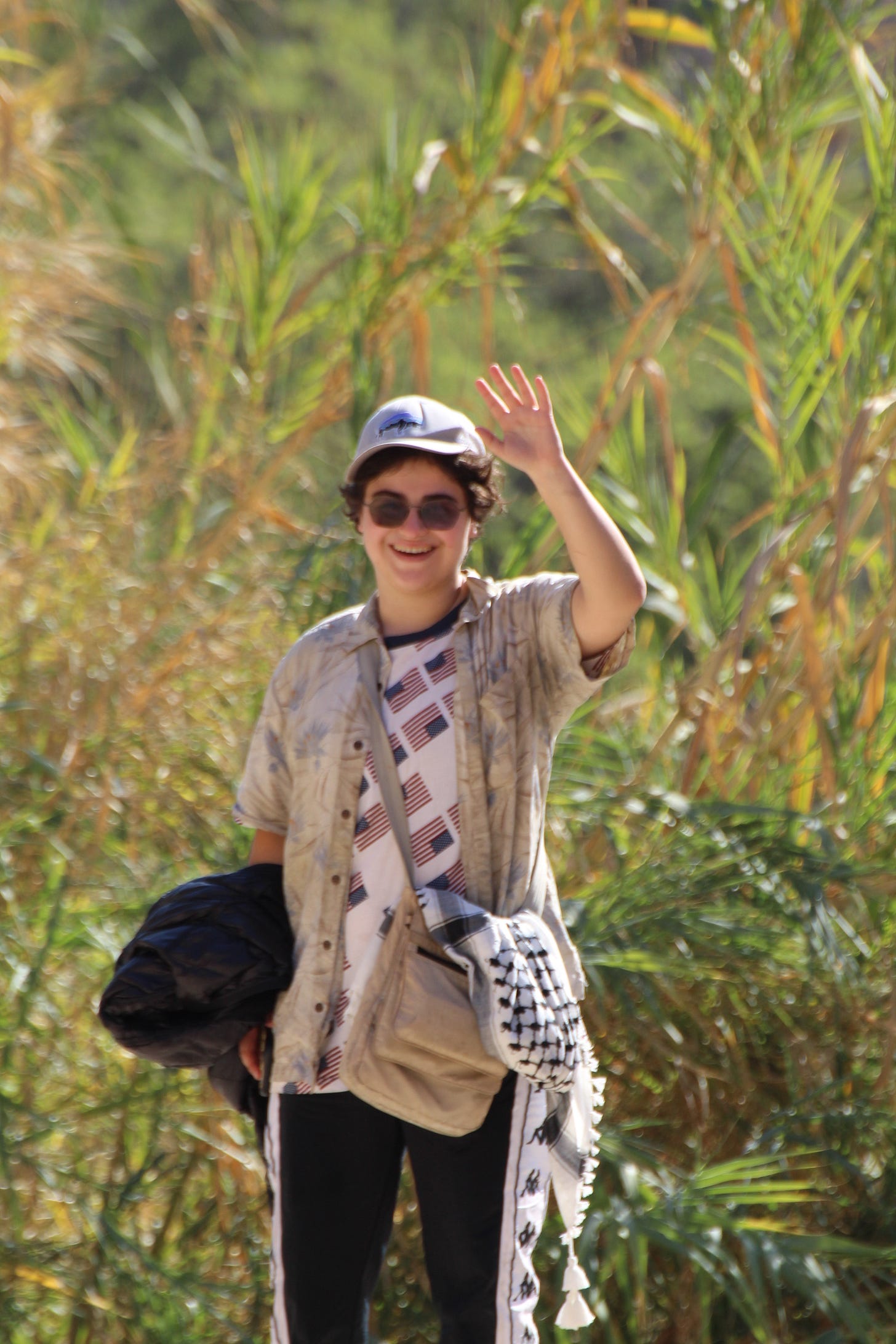
Reflecting on that day, I realize that although I had intellectually desisted from the beliefs of gender ideology, there was still an ever present fear of being seen which pervaded my sensibilities- even as I faced existential threats. I spent the entire day hearing sirens and running for my life, and by the end of it, I had no more psychological energy remaining to fixate on who had seen me without the binder.
Binding my breasts and passing as male became the least of my problems. Though it was physically and emotionally uncomfortable to run without the compression of the binder, it was during those moments that I realized that my female body was not a pathology, but rather that it was capable.
I came to the understanding that in order to survive a dangerous and chaotic environment, it was prudent for me to keep my body fully intact and independent of elective medical procedures and pharmaceutical interventions.
My decision (at the age of 24) to desist from my transgender identity and to stop intentionally passing myself off as a man, was a decision to give up on the path I had planned for myself over the course of twelve years (half of my life).
I did it with the knowledge that these treatments were neither evidence-based nor had approval of the FDA to be used as treatments for gender dysphoria. I knew that because I was under the age of 25, and had a diagnosis of ADHD which further delays full cognitive maturation- by choosing to not medicalize, I was choosing to invest in my future.
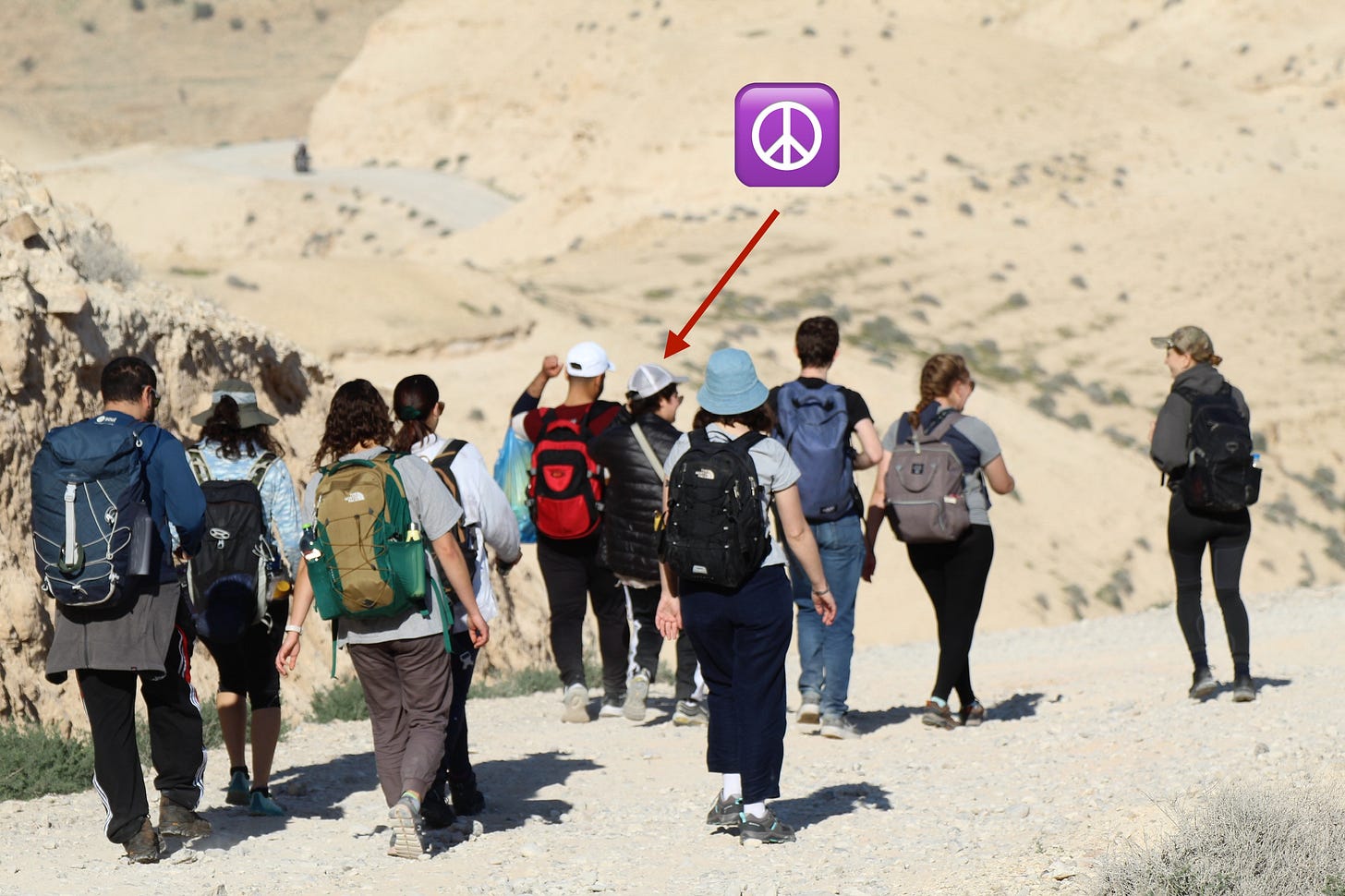
I have to be honest.
I still do miss living as a man.
I miss the normalcy of having the world interact with me as a man.
I don’t know what I am supposed to expect now- how do I relate to men, when I used to be “one of the bro’s?”
And how to relate to women without hiding that I am female— unless of course I want to date one of them.
I think my trans identity allowed me to come to a better way to rationalize my sexual orientation. But it is also the result of a lot of pain, of feeling masculine while having a female body- a deep incongruity.
How do I rebuild an entire set of exquisite relationships I’ve made with people that were all based on a fundamental lie. I’m not sure exactly how that will look, but it is overwhelming and lonely.
In the meantime, I’ve found solace in my interactions with other detransitioners and lesbians of all ages. who have given me an understanding that I am not alone.
Looking back, if I could change just one thing, I wish I had not been gifted iPad for my twelfth birthday
I wish I had been allowed to develop a sense of identity without exposure to false and harmful beliefs about myself.
I wish that I had been able to grow into my body, rather than damaging myself with seven years of breast binding.
What would the past twelve years had been like if I hadn’t fallen down the rabbit hole and had embraced my body as it really was? Instead, I staked my future on a pathway of endlessly futile attempts to become what I was not and was incapable of becoming.
Gender ideology contains dangerous and destructive ideas to developing minds. Even for those who manage to avoid medicalization, the psychological and physical harms of this ideology are tremendous.

Since October 7th, I have fully given up my dream of transition. While I find myself alternating between moments of grief over the lost years and regret over the harm I had subjected myself to as a result of breast binding, the friends I lost to war, and the loss of my childhood fantasy of becoming a man- I also am grateful for my unpredictable journey.
The friendships I have forged with fellow detransitioners are deeply meaningful to me in a way I had never experienced when I was trans. My friendships today are no longer based on a lie about who I am or who I am not.
Detransition is not an easy process. It is painful, arduous, lonely, and uncharted. But it is equally a process which brings moments of internal peace, connection, authenticity- and ultimately, relief. I am grateful to no longer be ensnared within a perpetual flight from biological reality.
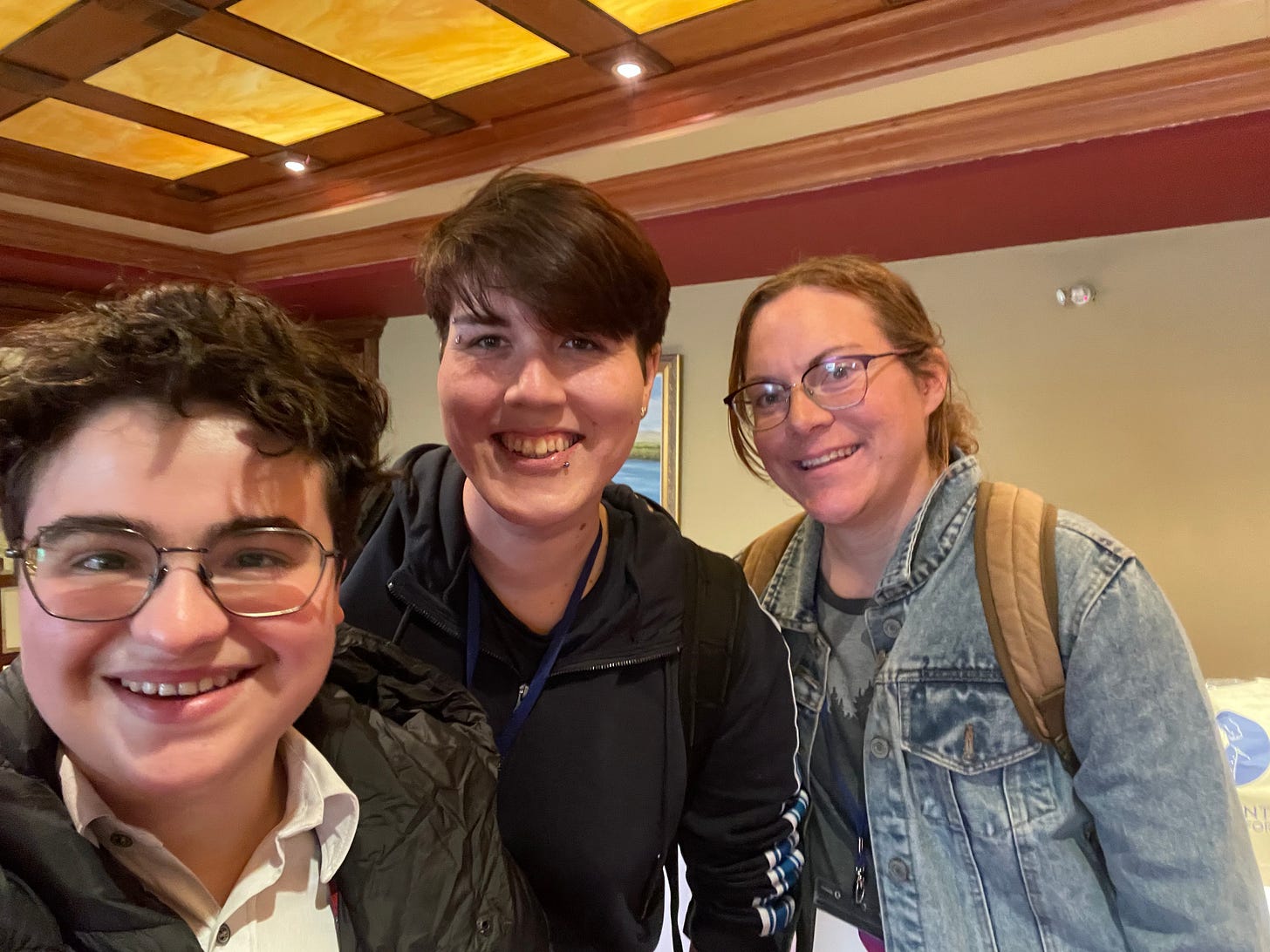
Many concerned parents of trans-identified teens and young adults comb through the accounts of detransitioners in hopes of finding information, resources or arguments which can be used to dissuade their child from medicalization. Some have reached out, asking for advice on how to get their children to come to the same realizations I had.
In part three of this series, I will share more insight on what may be going on in the mind of a trans identified child. I will also reflect on the ways in which the changing of parent-child dynamics as I developed from an adolescent into a young adult, influenced both my transition and my desistance/detransition.
What, if anything, could my family have said to me in order to have reached the conclusions which catalyzed my desistance earlier?
I will do my best to answer this question in Part 3, next week.
Until then,
Maia






